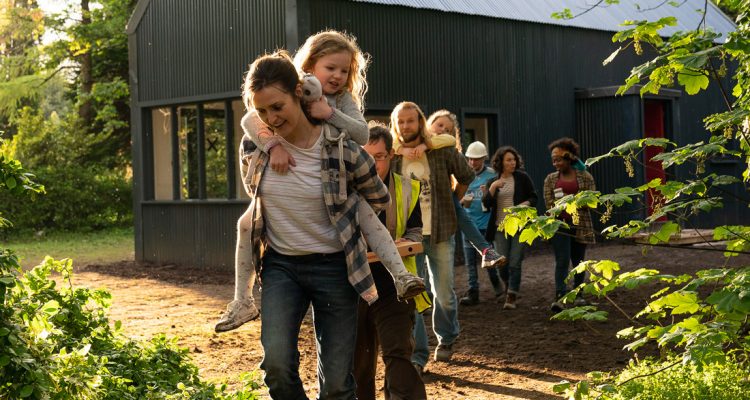Phyllida Lloyd’s first film since “The Iron Lady,” the filmmaker/theatre director’s serious follow up to the more operatic jukebox candy of “Mama Mia,” her latest film, “Herself,” is another more sobering effort and an affecting look at domestic abuse and emancipation from violence. It’s a low-key Dublin-set drama, touching upon social issues of economic anxiety and housing crises, and one that’s deeply empathetic, sharply observed, and features terrifically moving performances.
READ MORE: 52 Films Directed By Women To Watch In 2020
Absent from the screen for nine years, in the interim, Lloyd was busy directing The Donmar Warehouse’s all-female “Shakespeare Trilogy.” There, her cast included Clare Dunne, the eventual lead actress and co-screenwriter of “Herself.” During the play, Lloyd found out that Dunne had written a script and decided to direct it immediately after reading it.
READ MORE: The 25 Most Anticipated Movies Of The 2020 Sundance Film Festival
For years, the Dublin housing crisis has been an enormous issue for Irish residents. In 2018, Paddy Breathnach’s “Rosie” used comedy to tackle this complicated subject. “Herself” takes a more serious approach to the issue, intersecting spousal abuse and post-traumatic stress disorder into the story. The film follows Sandra (Dunne), a victim of domestic violence who becomes homeless with her two daughters after she leaves her husband. Sandra and her children are placed in a small hotel room until they can find proper housing. Yet, instead of waiting around for the government to assist, Sandra takes the matter into her own hands and decides to build her own house.
READ MORE: The 25 Best Movies Of 2020 We’ve Already Seen
Sandra is not alone in finding herself a home. Throughout the film, a community gathers together to help her and her children. She is joined by her boss Peggy (an excellent supporting performance by theatre veteran Harriet Walter, whom Lloyd also found on the stage); a sympathetic builder she meets at a hardware store (“Game of Thrones” star Conleth Hill); a fellow parent at her children’s school; and plenty of others who join Sandra in her ambitious and inspiring quest to create a home for her family.
READ MORE: 100 Most Anticipated Films Of 2020
Domestic violence and PTSD are delicate subjects to portray, and Lloyd treats them with appropriate care and sympathy. Her direction captures Sandra’s struggle without exploiting her trauma, and her PTSD attacks are juxtaposed with fragmented flashbacks of the film’s traumatic opening scene.
At a critical moment, Sandra is forced into court to prevent her husband from taking custody of their children. Here, Dunne’s performance really shines, undoubtedly the driving force and emotional core of the film. Her embodiment of a victim suffering from PTSD is so riveting that even in her characters’ happiest moments, her body language, subtle movements, and tics, the cadence of her breathing all signal that she is not entirely at peace. Her anxiety is visceral, making the audience vary of how something can go wrong any second.
The somber courtroom scene reflects what millions of women who are victims of violence have to go through every day. It does not matter that Sandra has evidence against her husband; in the eyes of the judicial system, she should have done more to protect her children. It’s a powerful moment that outlines everything wrong with the judicial system in moments, and a rare instance of a film openly portraying the dehumanizing process that a victim often has to endure to even attempt to receive a glimmer of justice.
“Herself” takes an old saying—home is not just a place, it is people— and places it front and center on the film’s mantlepiece. It then transforms this adage in such a subtle and elegant way that it isn’t until Sandra, her daughters, and everyone helping to build the house sit down to have dinner together that the idea of makeshift family becomes visible. They may not be able to understand what Sandra has gone through and the emotional trauma she will continue to grapple with, but their effort to do whatever they can to help her is becomes a warm and touching support system.
A heavy film about the indignities victims of domestic violence have to experience to be safe, “Herself” still possesses much grace and doesn’t dare to wallow in its misery. It’s also a poignant film about what it takes to be at peace and how it is everyone’s duty to make sure their voices don’t go unheard. [B+]
Follow along for all of our coverage from the 2020 Sundance Film Festival here.

